Table of Contents[Hide][Show]
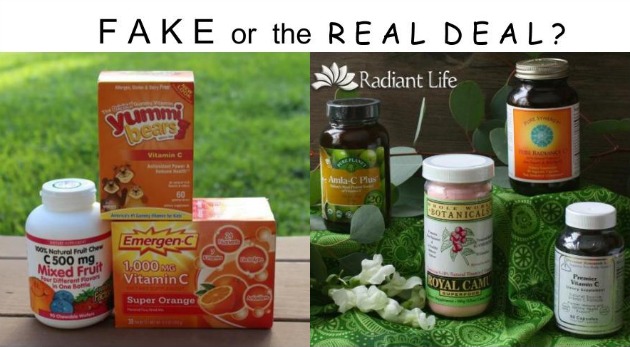
There is little dispute in either conventional or alternative health circles about the critical importance of vitamin C to optimal wellness.
When most people consider the consequences of vitamin C deficiency, however, the usual image that comes to mind is of a scurvy ridden, orally challenged, 16th-century sailor who has run out of limes!
While a severe deficiency of vitamin C is rare anymore, subclinical deficiency is most definitely not.
A powerful anti-oxidant, vitamin C is a water-soluble nutrient that is needed for numerous biological functions including:
- Tissue growth and repair
- Strength of capillary walls
- Lactation
- Preventing adrenal fatigue
- Formation of collagen
- Healing of wounds
Vitamin C is probably best known for its ability to shorten the duration and severity of the common cold as popularized by Dr. Linus Pauling in his 1970 book, Vitamin C and the Common Cold.
Found in many fruits and vegetables and in some animal organs, vitamin C is a delicate nutrient that is destroyed by heat. Consequently, in the modern diet where the majority of most people’s meals consist of highly processed fare, little vitamin C remains for absorption.
The problem of little natural vitamin C in the heavily processed, modern diet is compounded by the fact that the millions of individuals with blood sugar issues such as hypoglycemia require more vitamin C as this condition interferes with its metabolism by the body.
In addition, alcohol consumption and many common drugs such as aspirin and the birth control pill may reduce vitamin C levels in the body.
With vitamin C so critical and yet so elusive in the modern diet with higher than normal levels required by many due to metabolic issues or drug interactions, it is no wonder that vitamin C supplements are absolutely everywhere – commonly sold even at gas stations!
While vitamin C supplementation is a good idea for most people (I take one myself as do my children and husband), supplementation with just any vitamin C is not.
The Truth about Ascorbic Acid
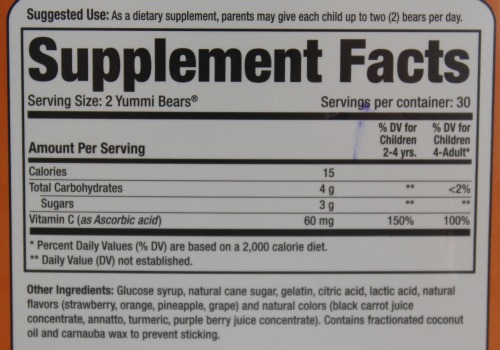 The problem is that most vitamin C is not really vitamin C at all. It is ascorbic acid, a synthetic, lab created version not found anywhere in nature, which is only one part (the outer layer) of the complete vitamin C complex.
The problem is that most vitamin C is not really vitamin C at all. It is ascorbic acid, a synthetic, lab created version not found anywhere in nature, which is only one part (the outer layer) of the complete vitamin C complex.
Consumption of isolated ascorbic acid is not a good idea on a regular basis. Some evidence suggests that large doses may lead to imbalances and deficiencies in the flavonoids (vitamin P), a powerful family of over 6,000 antioxidants that have a symbiotic working relationship with vitamin C – each increasing the other’s effect.
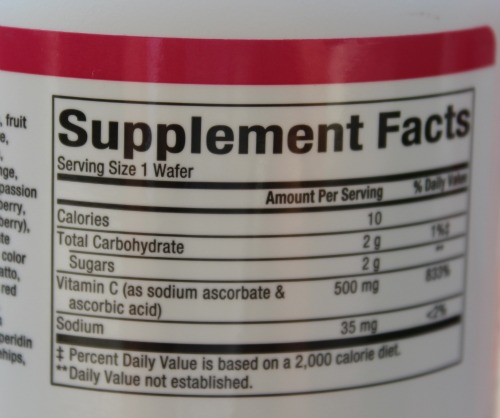 Even more worrisome is that ascorbic acid, while proven to kill bacteria effectively, is not discriminatory in its anti-microbial abilities as it also wipes out good bacteria or probiotics in the gut. Whole foods based vitamin C does not harm beneficial intestinal bacteria in the same way as synthetic vitamin C does.
Even more worrisome is that ascorbic acid, while proven to kill bacteria effectively, is not discriminatory in its anti-microbial abilities as it also wipes out good bacteria or probiotics in the gut. Whole foods based vitamin C does not harm beneficial intestinal bacteria in the same way as synthetic vitamin C does.
Another wake up call about ascorbic acid – it is synthesized from corn syrup. If you take a supplement with ascorbic acid, you guessed it, you are likely consuming a supplement with GMO origins (unless the corn was certified organic) without even knowing it!
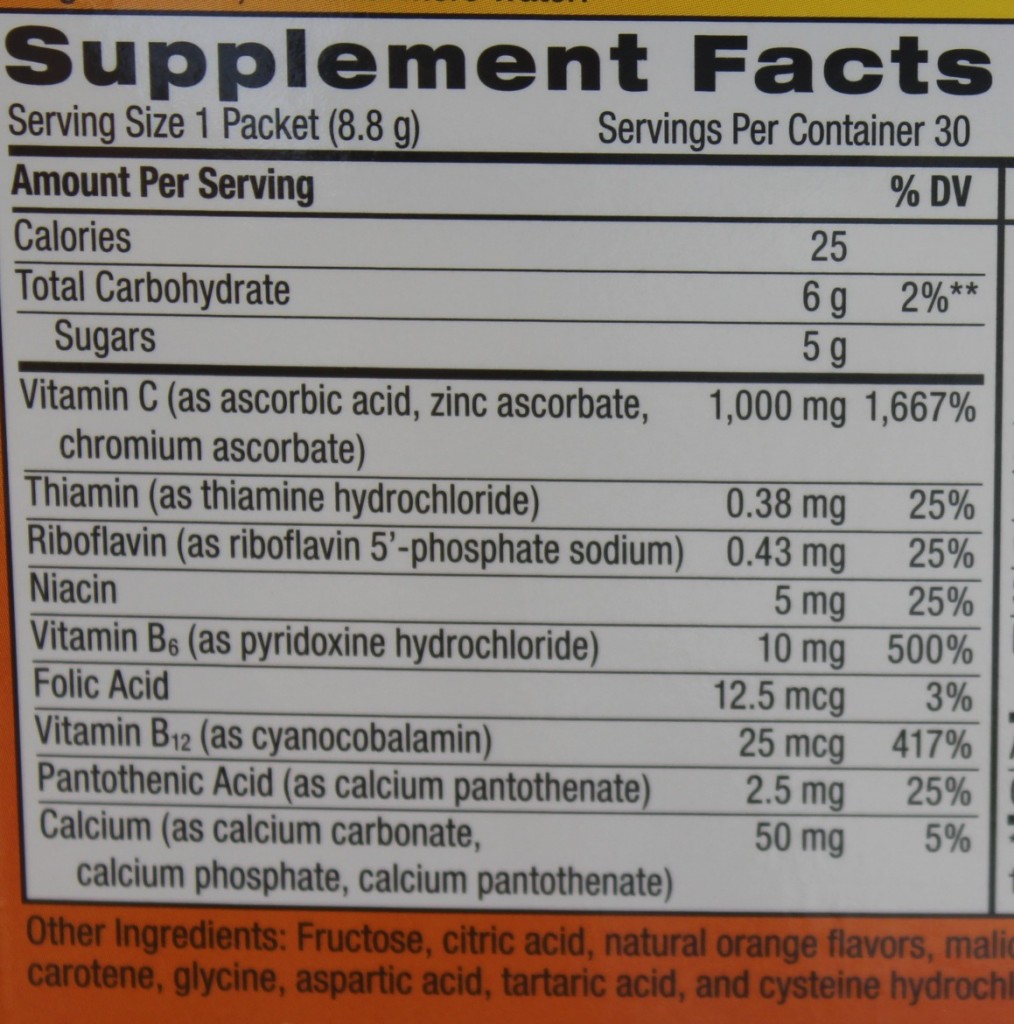 To show you just how common GMO derived, probiotic destroying ascorbic acid masquerading as true vitamin C is, I took photographs of the labels of three extremely popular vitamin C supplements at the healthfood store. The pictures to the right show that there is no real vitamin C to be found in any of them, even the children’s yummi bears!
To show you just how common GMO derived, probiotic destroying ascorbic acid masquerading as true vitamin C is, I took photographs of the labels of three extremely popular vitamin C supplements at the healthfood store. The pictures to the right show that there is no real vitamin C to be found in any of them, even the children’s yummi bears!
True Vitamin C with No Additives
Given that natural vitamin C is destroyed by heat and that the vast majority of “vitamin C” supplements and foods fortified with “vitamin C” don’t contain any true vitamin C at all, what is a person who needs to supplement with this critical nutrient to do?
Finding a quality vitamin C supplement is indeed hard! In fact, I didn’t take one for years simply because I couldn’t find one that was 100% whole foods based with no additives whatsoever. Every single time I tried one that was “almost” good enough, I would end up stopping it as it would inevitably give me bad headaches.
It is only in the past few months that I have finally started to take a vitamin C supplement regularly because at last I found a line that is low heat processed, whole foods based, and entirely additive free. The funny thing is, the products were right under my nose all along and I didn’t even realize it!
My friends Norm and Kathy LeMoine of Radiant Life offer a quality line of whole food vitamin C supplements to choose from. The one I’ve been taking and very much enjoying is Pure Radiance C. You simply stir a 1/4-1/2 teaspoon in a some filtered water and drink. It tastes great!
You can also hold the vitamin C mixture in your mouth for a minute or so before swallowing to allow vitamin C to absorb directly into the thin and delicate gum tissue. Great for those with periodontal problems.
Capsules are also available if desired for added convenience.
Radiant Life offers several other whole foods vitamin C products with no additives to choose from as well. The difference between the products is the whole food sources of the vitamin C. Choose whichever mix of vitamin C sources suits your nutritional goals best. The chart below illustrates the various product options.
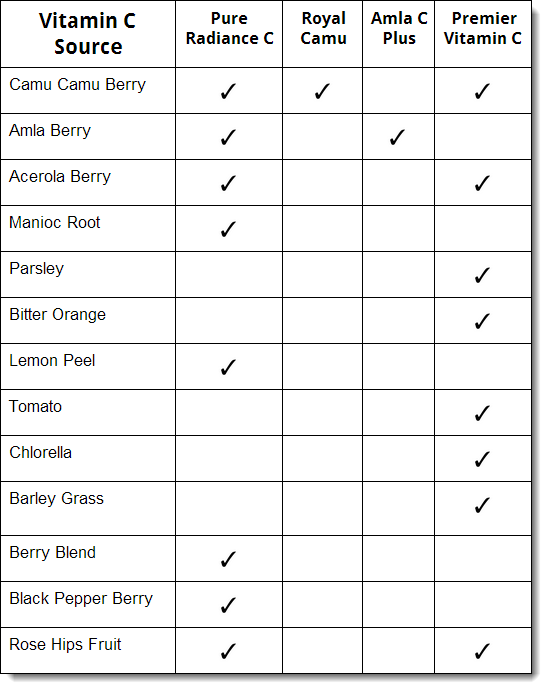
If this article has caused you to throw up your hands in dismay because the vitamin C you had chosen for your family turned out to be synthetic and probably of GMO origins, don’t despair!
Move forward with the newfound knowledge that vitamin C from a whole foods supplement with zero additives is in fact available and that there is a company you can trust which offers four superior forms of this important nutrient for you to choose from. Click here to review your real Vitamin C options and ditch those GMO wannabe’s.
References
(1) Vitamin Primer
(2) Synthetic Vit C kills beneficial bacteria in the gut
(3) What’s Wrong with Synthetic Vit C








What is it is listed as “from citrus c blend”, as it is in the Garden of Life Vitamin Code for kids?
Hello:
While your intentions may be good, this article does a real disservice to Vitamin C, and the people currently supplementing with it.
1. “The problem is that most vitamin C is not really vitamin C at all. It is ascorbic acid, a lab synthesized version not found anywhere in nature, which is only one part (the outer layer) of the complete vitamin C complex.”
False. Linus Pauling argued that Vit C and ascorbic acid are exactly identical. Pauling is the ONLY human being on the planet to win two Nobel Prizes in separate fields. You are making a bold statement. Please provide a link to the study you based this opinion on. Directly from the Linus Pauling Institute website:
Natural vs. synthetic vitamin C
Natural and synthetic L-ascorbic acid are chemically identical and there are no known differences in their biological activities or bioavailabilities.
(101). 101. Gregory JF, 3rd. Ascorbic acid bioavailability in foods and supplements. Nutr Rev. 1993;51(10):301-303.
2. “Another wake up call about ascorbic acid – it is synthesized from corn syrup. If you take a vitamin C supplement with ascorbic acid, you guessed it, you are likely consuming a supplement with GMO origins (unless the corn was certified organic) without even knowing it!”
False. Yes, 90% of the world supply of manufactured ascorbic acid is derived from corn syrup. However, as of right now, the majority (if not all) is from non-GMO corn. I have certificates of analysis that show this on the ascorbic we use. Unless companies are falsifying their documents, this claim is completely false. And if you think the big 4 are indeed falsifying certificates of analysis, then you are basing your opinion on conspiracy theories and you should indicate such.
In fact, it’s an irrelevant point anyway, even if the corn is GMO. While ascorbic acid starts as corn sugar, the end product resembles corn in no way, shape or form. It’s a reduction process whereby the finished product contains none of the proteins or anything that makes corn, well, corn. It’s the same reason ascorbic can be produced from beets, potatoes, etc. There is a reason why people that have corn allergies can take ascorbic without any adverse reactions (in our experience).
Disclaimer: We have been in the Vitamin C business for 43 years now. My Uncle worked with the likes of Pauling, Irwin Stone, Robert Cathcart, etc. Articles like this that tend to further obfuscate years of proven research by some of the greatest minds in the field and that is unfortunate.
Addendum to my last post, please update point 1:
Natural vs. synthetic ascorbic acid
Natural and synthetic L-ascorbic acid are chemically identical, and there are no known differences in their biological activity. The possibility that the bioavailability of L-ascorbic acid from natural sources might differ from that of synthetic ascorbic acid was investigated in at least two human studies, and no clinically significant differences were observed. A study of 12 males (six smokers and six nonsmokers) found the bioavailability of synthetic ascorbic acid (powder administered in water) to be slightly superior to that of orange juice, based on blood levels of ascorbic acid, and not different based on ascorbic acid in leukocytes (white blood cells) (1). A study in 68 male nonsmokers found that ascorbic acid consumed in cooked broccoli, orange juice, orange slices, and as synthetic ascorbic acid tablets are equally bioavailable, as measured by plasma ascorbic acid levels (2, 3).
I am not familiar with any facility that produces ascorbic acid that has not used gmo corn. so, there is a residue. A lot of us are trying to evade gmo foods. Can you tell me the by-products that we are getting from the synthesis? This is what we do not want in our bodies, the unnatural by-products that we cannot absorb so if we do not get rid, collects in our squamous cells.
I am not familiar with any facility that produces ascorbic acid that HAS used GMO corn. Can you provide the name of even one?
As a retailer of vitamin C, every batch of ascobic we have EVER received has been certified non-GMO. Please provide evidence of the alternative. I await your response.
There is no certification for non-GMO corn unless it is organic or from the NonGMO project. No ascorbic acid I’ve ever seen (so far) has either of these certifications.
Corn is used to FATTEN LIVESTOCK so I say NO thanks to your recommendation of CORN based ascorbic acid supplements. GMOs are airborne and any honest farmer will tell you ALL corn has GMO contamination its just a matter of how much. I bet you think soy is healthy too.
Oh well, if someone received a Nobel Prize they must be infallible… and beyond reproach.
Nearly all corn is genetically modified, even “organic” corn has been cross-contamintated. There are 2 strains of GM corn, one has a patent to sterilize humans, created by Epycite, bought by Monsanto. The other causes organ failure, destroys stomach lining and causes cancer.
There are no labeling laws, so you don’t know which strain you are getting.
Now how is that healthful?
I don’t guess the infallible Linus can help you on that one now can he? But I guess it’s so easy for you to dismiss a crazy conspiracy theory… despite all the testing, studies and evidence to the contrary.
I never disputed the existence of GMOs, try reading my post in detail rather than just skimming it. What I put to rest is this continual fountain of misinformation (i.e this article) that continues to spew out that manufactured ascorbic acid is a GMO product. Ascorbic acid is a defined chemical molecule. It’s C6H8O6. Nothing more, nothing less. One cannot genetically modify carbon, hydrogen and oxygen. Thus, ascorbic acid (aka vitamin C) is a GMO free product. Period.
It doesn’t take the “infallible” chemist Linus Pauling to understand a simple concept like this. If you had taken the time to actually read what I wrote, and then put some thought into it, rather than getting defensive and condescending about your irrelevant GMO position, then maybe you would have understood. Unfortunately, this is how garbage proliferates all over the web. When people get so dug in in with their beliefs they no longer listen to simple logic.
Thanks so much Phil for your insight into Vit C. Sarah, are there any links or can you point to any scientific research/studies to support the statements about the incompleteness of synthetic vitamin c and Vitamin C as a natural C complex and also about most or all Vit C as GMO? It sounds like it would make sense but as in all supplements it would be helpful to see the research results. Thank you!
Steve:
My pleasure. I have never seen any reputable research suggesting that vitamin C from natural sources assimilates better than ascorbic acid. Alternatively, I have seen studies that provide ample evidence that vitamin C from natural sources and ascorbic acid are chemically identical with no difference in biological activity (see L. Pauling). Furthermore, I have a non-GMO certification in my hand from a major vitamin C manufacturer. In fact, manufactured ascorbic acid does not even contain the required levels of DNA to even test for GMO’s. It’s just carbon, hydrogen and oxygen. Testing ascorbic acid for GMO’s is akin to testing a rock in your back yard. No DNA = No GMO’s.
This was the first time I have read anything written by this ‘healthy home lady’. I hope everyone correctly read all of your input into Vitamin C, such an important Vitamin. I find it quite sad that the brand she recommends contains only 120 mg. per serving. Far too low a dose to help any illness. Her disclaimer should read ‘for entertainment purposes only’. Could you provide a link to the powdered Vit C you sell? I have owned several food companies, including a USDA manufacturing plant, so I am quite familiar with labeling laws, ingredients, etc. Thank you Phil- great input
One of the points of the article is that you don’t need to take megadoses of Vitamin C (that have side effects and cause damage) when you get the whole food version and bypass synthetic ascorbic acid! Seems you are stuck in corporate-think when it comes to food and nutrition.
Hi Sarah, I looked through the Radiance Life website on the powdered kind you talked about… I didn’t see a dosage for children. My daughter is 3 years old-how much would you recommend a child her age to have on a daily basis. if you don’t know that, maybe you could share how much you give your kids?
She also takes FCLO-I don’t know if that affects the amount of Vit C you would give or not…
Thanks for the article-I am for sure going to buy some of this for my family!!!
I have been taking a daily whole food vitamin from NewMark called Women’s Synbiotic One but my nutritionist is having difficulty getting it now. He suggested I start taking a new daily liquid called IntraMax which bills itself as “100% carbon-bond organic”. He seems to think it is a step up from what I was taking.
I am ALWAYS a skeptic and cynic about supplements but I have been helped over the past 3 years and I try to trust this man. I’ve been online trying to figure out if it is the real deal. (I had only dropped in his office to pick up my other vitamin and so did not have the luxury of talking to him about this very long.) The Vitamin C listed is as “calcium ascorbate buffered complex” and it supposedly has no synthetic stuff in it, as far as I can tell from my research.
Does anyone know about IntraMax and if so, can you share your thoughts on it with me?
Many thanks.
Hi Sarah – I am currently dealing with & treating my candidiasis and am wondering if using the products you mentioned would hinder healing, as they are from fruit sources and may contain sugar?
Thanks!
Hey Sarah,
I don’t get what your saying here. So vitamin c is bad but vitamin c in fruit is good? I get my c from a no gmo company and have been taking it for years and I am way healthier than any of my friends who don’t. Its ascorbic acid. Am I at some risk here? Actually I know Im not really because ive been on high doses -like 6 or 8 grams a day for 6 years and am fine!
Tammi
Ummm, vit C IS ascorbic acid… and it’s what is made in the kidneys and livers of animals other than humans, higher primates, Guinea pigs, a fruit bat and a few parrots if memory serves. Made in bodies seems pretty “natural,” no?
How can one molecular chain be “purer” than another? The name for the vit-C molecule is ascorbic acid, though some in the field are calling it ( the L-ascorbic acid form and the C bound to sodium) “ascorbate” just to add to the confusion.
Add to that the fact that this ascorbic acid you find threatening is what saved people from scurvy in hospitals and is what was studied when vit-C was “discovered.”
This “natural compound” C sure sounds good, but it’s a fad and is, respectfully, meaningless. It does sell product, well, though!
The fact that almost all C (and most other supplements) is now made in China and is derived from GMO crops is very true, but this nonsense about “naturally” derived C “compounds” is …well, nonsense.
Check out the Vitamin C Foundation website, or some reputable doc’s (like Levy) and see what their take on this issue is… hint, they think it’s silly.
No, actually it was LIMES that saved people from scurvy NOT your beloved synthetic ascorbic acid supplements…it was whole food based vitamin C, just like the author mentioned.
I would also like to know your thoughts on Nutribiotics brand of Sodium Ascorbate? Here is the link http://www.nutribiotic.com/sodium-ascorbate.html. This is the Vit c that Suzanne Humphries suggests using to treat whooping cough. Thanks!
Is it possible to get enough Vitamin C through diet, or are supplements necessary?